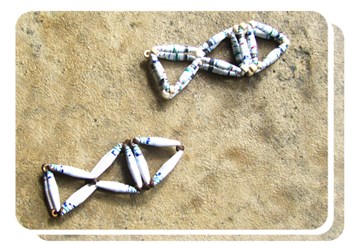Weyburn's Church of Christ welcomed missionary Salvador Cariaga this fall to share his message with their congregation and with the community of Weyburn.
Cariaga is founder of a charitable organization called Give a Goat in response to his own experience with the hardships of poverty. He wanted to do something about his home country's state of destitution. Unemployment, poor agriculture and unrecovered migration led Cariaga from the Philippines to the United States to attend college at Oklahoma Christian University. He raised support from local congregations and went back to the Philippines with a mission to alleviate poverty.
Since he was part of the culture and knew the society, Cariaga was able to get to the center of the problem, realizing that at the root of all economy is agriculture. If he could help restore sound farming practices and make food production flourish, he could stop poverty, end hunger and bring about the means for real change through education.
However, getting enough arable land to produce quality crops was next to impossible because poor use of chemical fertilizers had made the local soil barren. Not only that, but people were in urgent need of nutrition and could not wait for crops to be ready. Farmers were also unable to afford seeds to plant. All of these problems and question were solved when Salvador encountered goat-raising.
Goats produce rich fertilizer everyday just by feeding off of loose grass and vegetation. They also produce highly nutritious milk, especially suited for a lactose intolerant country like the Philippines. With the sales from milk and fertilizer, farmers are able to buy their own seeds for new farms.
With this vision in mind, Salvador set out to buy goats for his poor neighbors. He would give the goat for free, train the raiser how to properly care for it, and split the litter with the raiser to give to another family.
What started as the smallest of all operations has now grown to over 2,000 goats stringing from island to island in the Philippines. The goat program has allowed the organization to provide orphanages, schools, medical clinics, food pantries and training for organic gardening.
Though their reach has grown over the past few years, there are still millions and millions of people living in extreme poverty in the Philippines.
"It is our goal to continue to grow until there is no longer a need," said Cariaga.
Another fund-raising strategy Cariaga has introduced to groups across North America is the Trash to Treasure internet site. Hand-made recycled-paper beads strung into original jewelry, such as the Fish bracelets, has not only become a popular fashion trend because of Cariaga, but it also allows other groups to join with Cariaga in co-fundraising efforts. Each bracelet has a cost of $2.50 but Cariaga suggests groups sell them for $5 or $10 to raise funds for anything they wish.
A local group of elementary school-aged children and their parents have been conducting various fundraisers with the intention of giving back their proceeds to Give a Goat. They sell the bracelets and do bottle drives, etc., in order to save up for giving a goat. So far the group, who are also members of the Church of Christ, have raised enough funds for more than one goat and are hoping to purchase two goats in the new year. For each goat purchased, Give a Goat sends a hand-made straw goat as a thank-you.
For more information on Give a Goat, visit giveagoatnow.com. To view the variety of hand-made fundraising merchandise handled by Cariaga, go to trashtotreasure.shutterfly.com.
Salvador Cariaga recently returned to the Philippines and is currently working directly with ending the cycle of poverty in his homeland.




